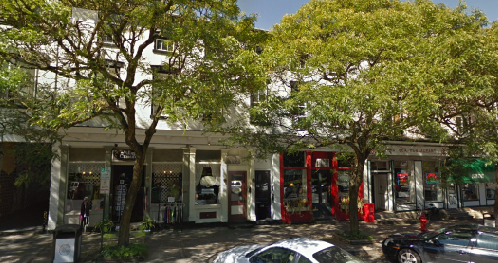
Photo Courtesy of Google Maps
As WKTV reported officially last week, fraudulent salespeople have been using the name of Hamilton College to approach local businesses and scam them out of money.
The College’s Campus Safety department has been handling this particular scam for over a year. “The scam was first reported in the spring of 2017, believe it or not,” said Campus Safety Director Francis Coots. “We then initiated an internal investigation on campus and found that no collegiate groups were actually a part of it, and that’s when we determined that it was a scam.”
The use of trusted school names as a scamming strategy has affected many colleges across the country, and this particular incident marked one of many fraudulent cases involving Hamilton College’s name. “Hamilton became aware of a similar scam about five years ago,” said Director of Communications Michael Debraggio. “Then, like now, merchants were told [by the scammers that] their advertisements would become part of a publication that the College had agreed to distribute to students on campus. Hamilton had made no such agreement.”
Coots agreed, reporting that this type of fraud easily allows scammers to take advantage of locals in support of a college. “I would be really surprised if they didn’t take advantage of every single college every single year because it’s like the business throws a hook out and waits to catch someone that will offer them money,” said Coots. “And many businesses will be willing to donate because there’s so many people out there that want to partner with the College and do the right thing.”
After investigations, the College discovered that the fraudulent business is based in Florida, but criminal charges cannot be pursued. “We wrote a letter to the business in Florida that we believe was behind it all, telling them that they were not authorized by the College to ask for money,” said Coots. “But I think that the business will continue doing it because when scammers weigh out the risks, it’s still financially worth taking the chance to make money.”
Having but one option left, the College has already taken action on a collegiate, local, and state level to make the public and legal offices aware of the situation. Debraggio said, “Hamilton filed a complaint with the New York Attorney General’s Office and asked the Clinton Chamber of Commerce to make its members aware of this scam should it be tried again in the future.
Having associated with the College for many years, some local businesses around or in the Village of Clinton found themselves affected by the scammers. “I spoke to a business in Clinton Village last week, and I know they had been approached by the scammer and actually paid some money,” said Coots. “The business told me that they have such a good relationship with Hamilton College that it didn’t want to say no when somebody had a contract that asked for donations.”
Coots, however, remained hopeful and positive that the local community will keep good relationships with the College despite this incident. Coots said, “We have a great relationship with the community and the businesses, and they know that collegiate groups often approach them throughout the year for funding — and they look forward to this partnership.”
